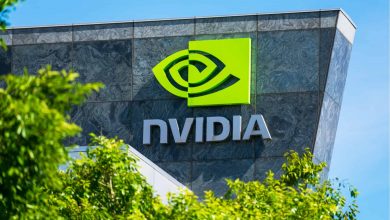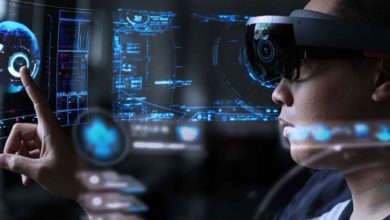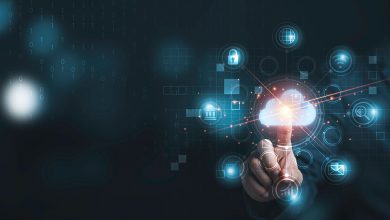Embarking on the journey of starting your own business is an exciting endeavor that requires careful planning, dedication, and a clear understanding of various factors that contribute to business success. Whether you’re venturing into a new industry or pursuing a long-held passion, it’s essential to be well-prepared and informed about the key considerations involved in setting up and running a successful business. In this article, we will explore important aspects to keep in mind when starting a business.
Business Idea and Niche: Identify Your Vision
- Define your business idea, target market, and unique value proposition that sets you apart from competitors.
2. Market Research: Know Your Audience
- Conduct thorough market research to understand your target customers, their needs, and market trends.
3. Business Plan: Blueprint for Success
- Create a comprehensive business plan outlining your goals, strategies, financial projections, and operational details.
4. Legal Structure: Choose Wisely
- Decide on the legal structure of your business, such as sole proprietorship, partnership, LLC, or corporation.
5. Funding and Budgeting: Financial Planning
- Determine how you will finance your business and create a realistic budget for startup costs and ongoing expenses.
6. Location: Choose Your Base
- Select a suitable location for your business that aligns with your target audience and business requirements.
7. Branding and Marketing: Establish Your Presence
- Develop a strong brand identity, logo, and marketing strategy to promote your business effectively.
8. Licensing and Permits: Legal Compliance
- Obtain the necessary licenses, permits, and registrations required to operate your business legally.
9. Suppliers and Partnerships: Secure Resources
- Establish relationships with reliable suppliers, manufacturers, and potential business partners.
10. Hiring and Staffing: Building Your Team – Determine your staffing needs and hire employees who align with your business values and goals.
11. Product or Service Development: Quality Assurance – Ensure your products or services meet high standards of quality and address customer needs.
12. Technology and Systems: Efficiency and Innovation – Implement technology solutions and operational systems to streamline processes and enhance efficiency.
13. Pricing Strategy: Value Proposition – Set competitive and sustainable pricing that reflects the value you provide to customers.
14. Customer Service: Delight Your Customers – Prioritize excellent customer service to build strong relationships and foster customer loyalty.
15. Adaptability and Growth: Embrace Change – Stay open to adapting your business strategies and seizing opportunities for growth and expansion.
Starting a business requires careful planning, dedication, and a willingness to learn and adapt. By considering these essential aspects and taking deliberate steps, you can lay a strong foundation for your business’s success. Remember that entrepreneurship is a journey filled with challenges and rewards, so approach it with passion, resilience, and a commitment to delivering value to your customers and making a positive impact in your chosen industry.
Becoming a Successful Business Operator: Key Knowledge and Skills
Taking on the role of a business operator or manager is a significant responsibility that requires a combination of skills, knowledge, and a proactive mindset. Whether you’re starting your own business or managing an existing one, being an effective business operator involves making strategic decisions, overseeing daily operations, and ensuring the overall success of the enterprise. In this article, we will explore essential factors to consider and skills to develop if you aspire to become a successful business operator.
Business Acumen: Understand Your Industry
- Gain a deep understanding of the industry you’re operating in, including market trends, customer preferences, and competition.
2. Leadership and Management: Guiding Your Team
- Develop strong leadership skills to inspire and manage your team effectively, fostering a positive and productive work environment.
3. Financial Literacy: Manage Finances Wisely
- Familiarize yourself with financial concepts, budgeting, cash flow management, and financial reporting.
4. Strategic Planning: Set Clear Goals
- Create a comprehensive business plan with well-defined goals and strategies for growth and success.
5. Communication Skills: Effective Interaction
- Cultivate strong communication skills to convey your vision, expectations, and instructions clearly to your team and stakeholders.
6. Decision-Making: Analyze and Choose
- Hone your decision-making abilities, considering both short-term and long-term implications for the business.
7. Problem-Solving: Addressing Challenges
- Develop effective problem-solving skills to tackle unexpected challenges and find creative solutions.
8. Customer Focus: Deliver Value
- Prioritize excellent customer service and continuously seek ways to enhance the customer experience.
9. Time Management: Balance Priorities
- Master time management techniques to allocate resources effectively and meet deadlines.
10. Employee Development: Nurture Your Team – Invest in employee training, development, and motivation to foster a skilled and motivated workforce.
11. Adaptability: Embrace Change – Stay open to adapting your business strategies based on market shifts and evolving customer needs.
12. Networking: Build Relationships – Cultivate a strong network of industry contacts, mentors, and peers to exchange insights and learn from others.
13. Regulatory Compliance: Navigate Legal Requirements – Understand and comply with local, state, and federal regulations relevant to your business operations.
14. Marketing and Branding: Promote Your Business – Develop a solid marketing strategy to promote your products or services and establish a strong brand presence.
15. Continuous Learning: Stay Informed – Commit to ongoing learning and self-improvement to stay updated on industry trends and best practices.
Becoming a successful business operator requires a combination of skills, knowledge, and a commitment to continuous improvement. By cultivating leadership qualities, embracing challenges, and making informed decisions, you can effectively manage operations, lead your team, and drive your business toward long-term success. Remember that being a business operator is a dynamic and rewarding role that requires dedication, resilience, and a passion for delivering value to customers and stakeholders.


















